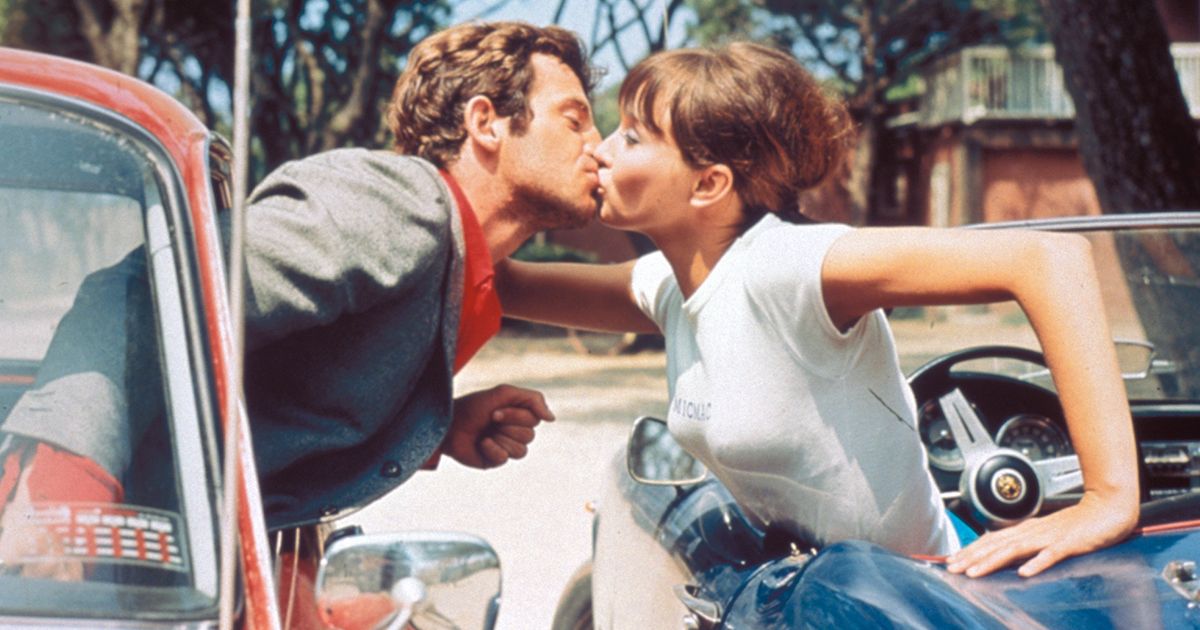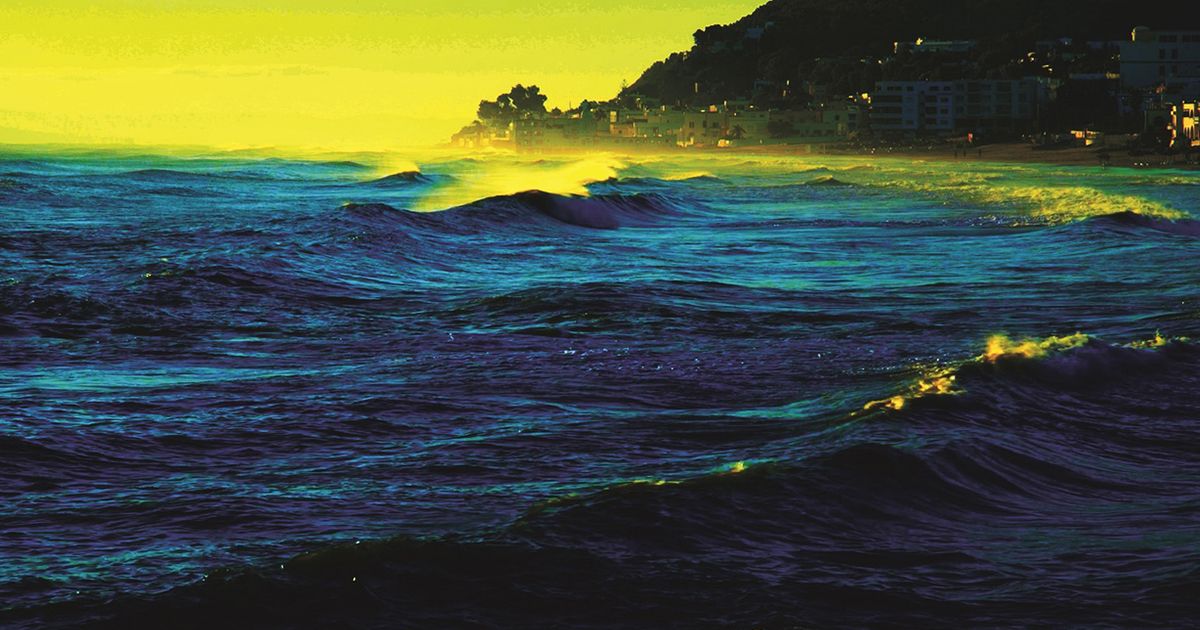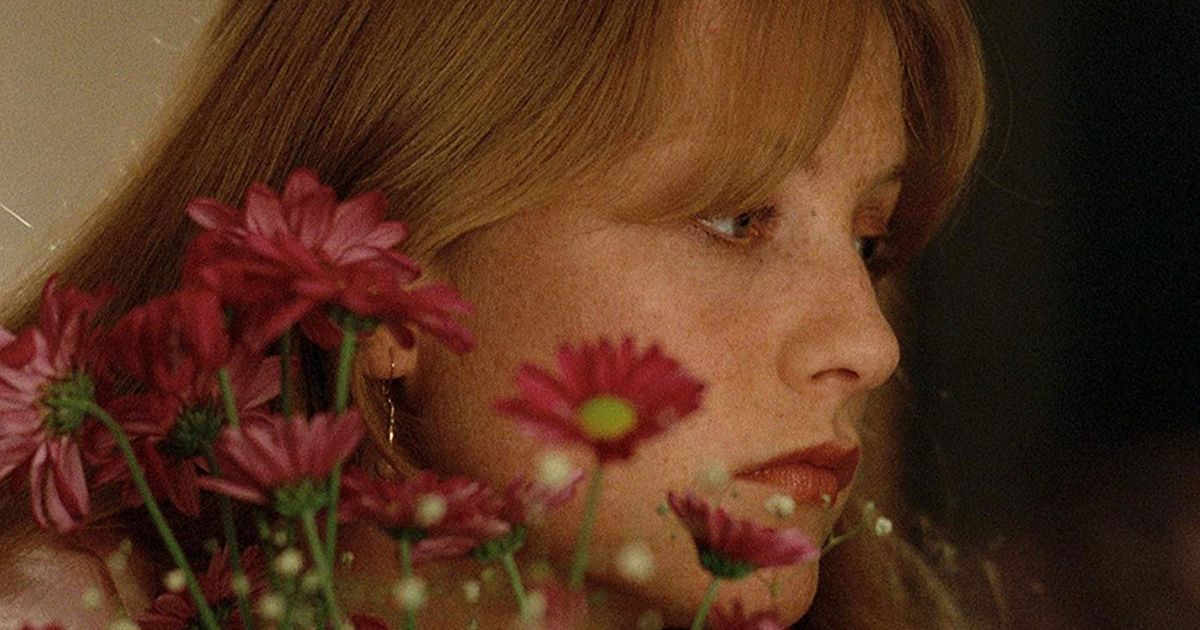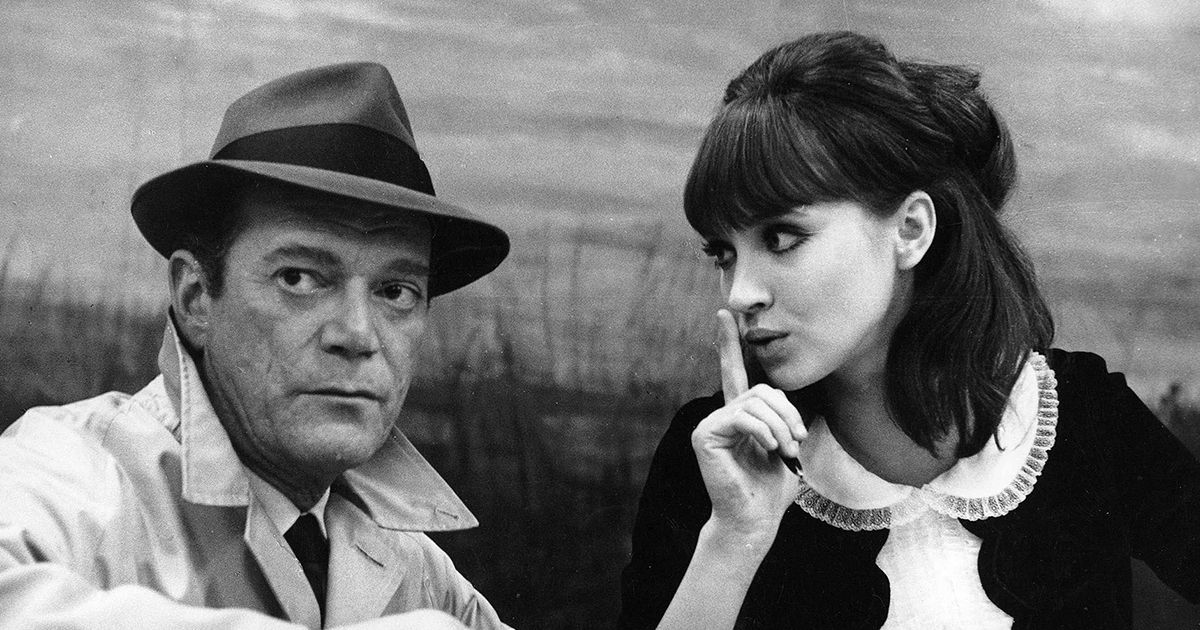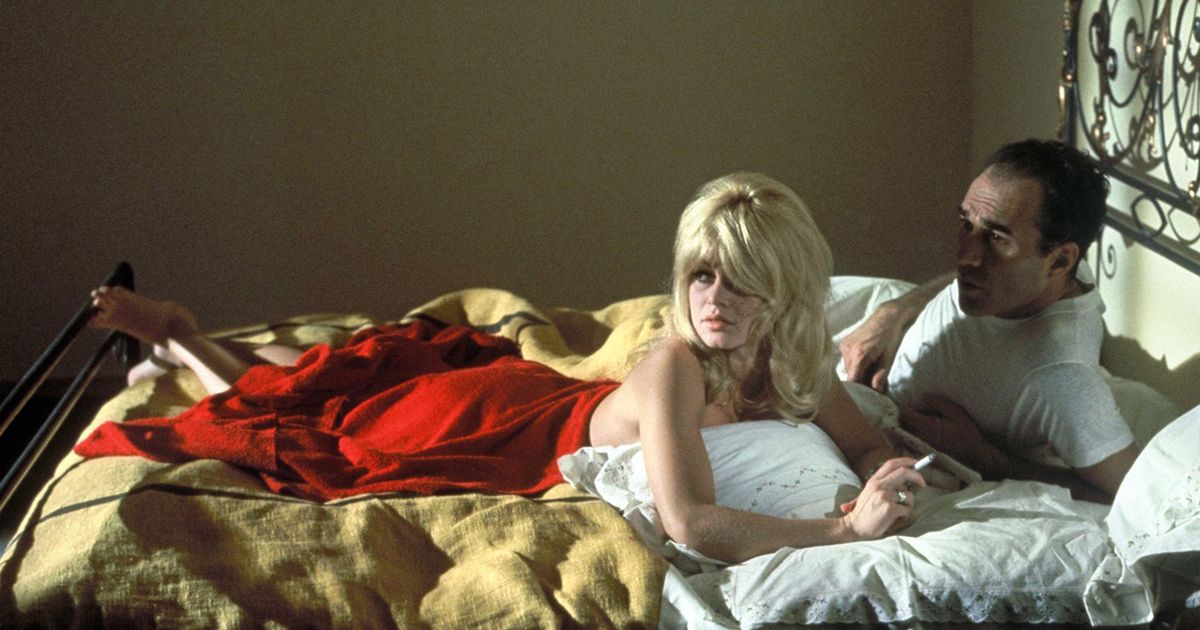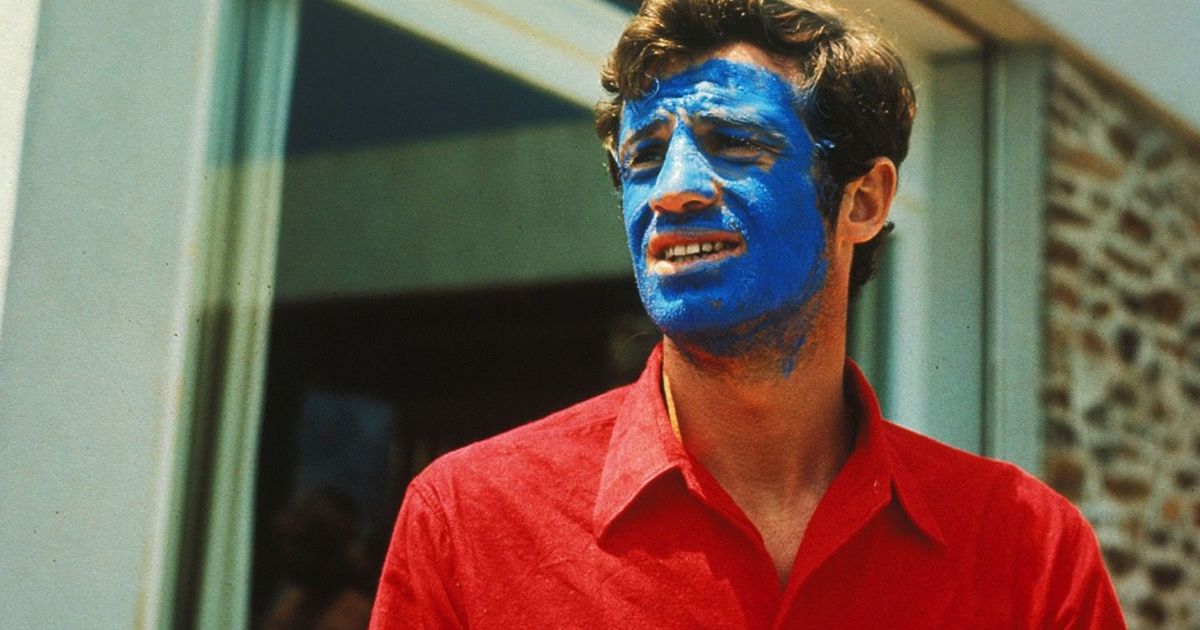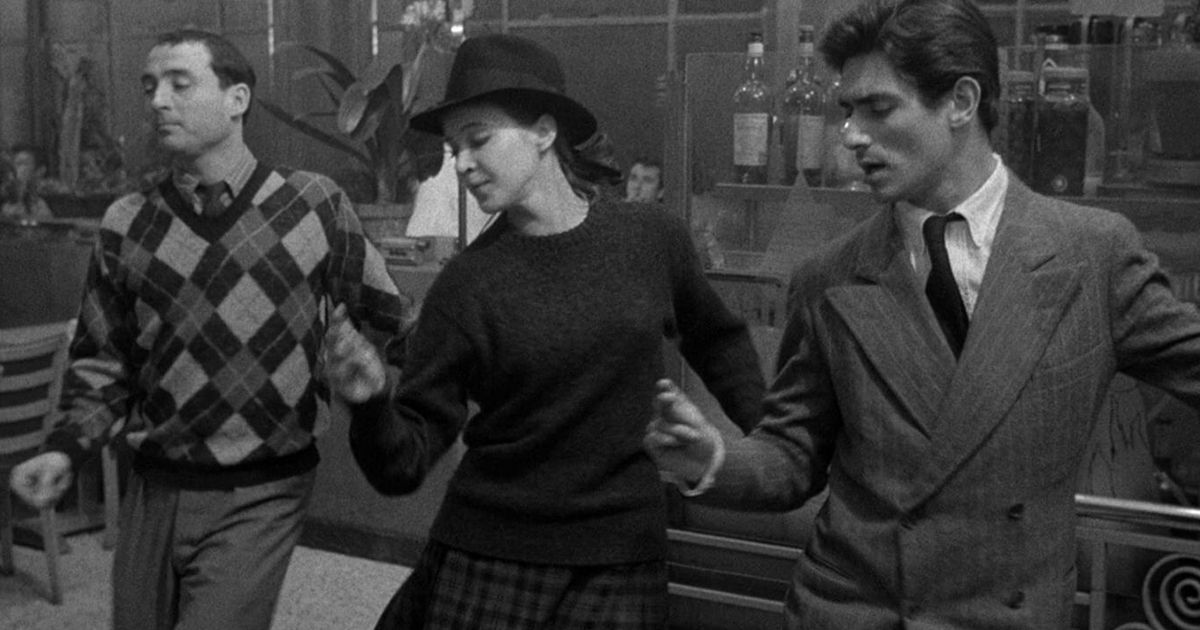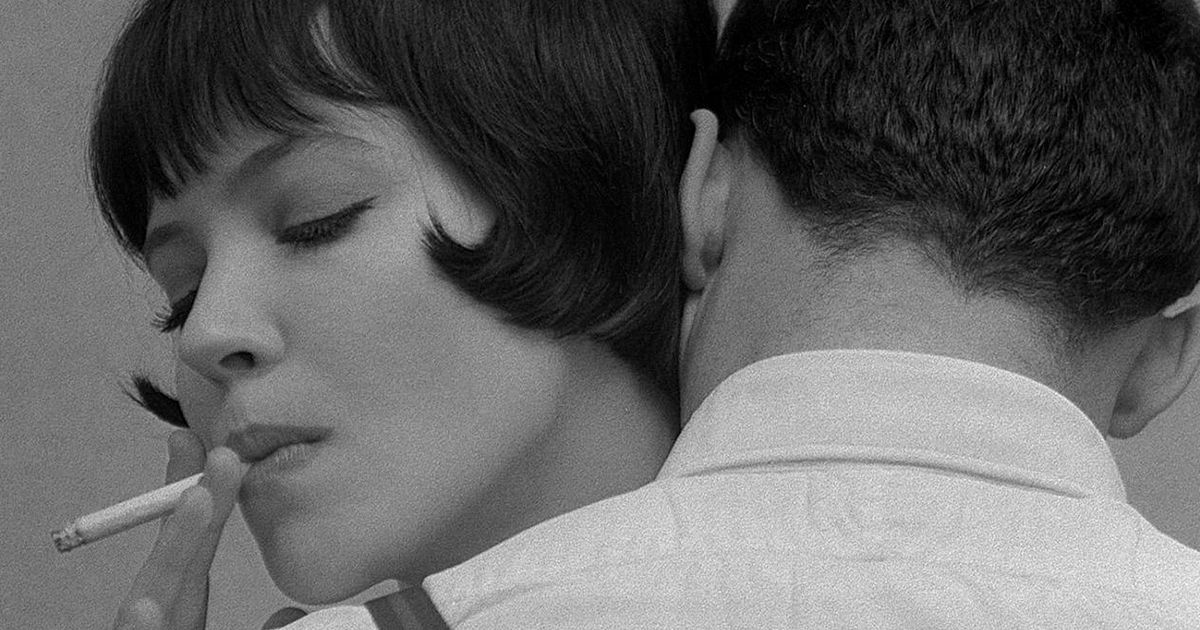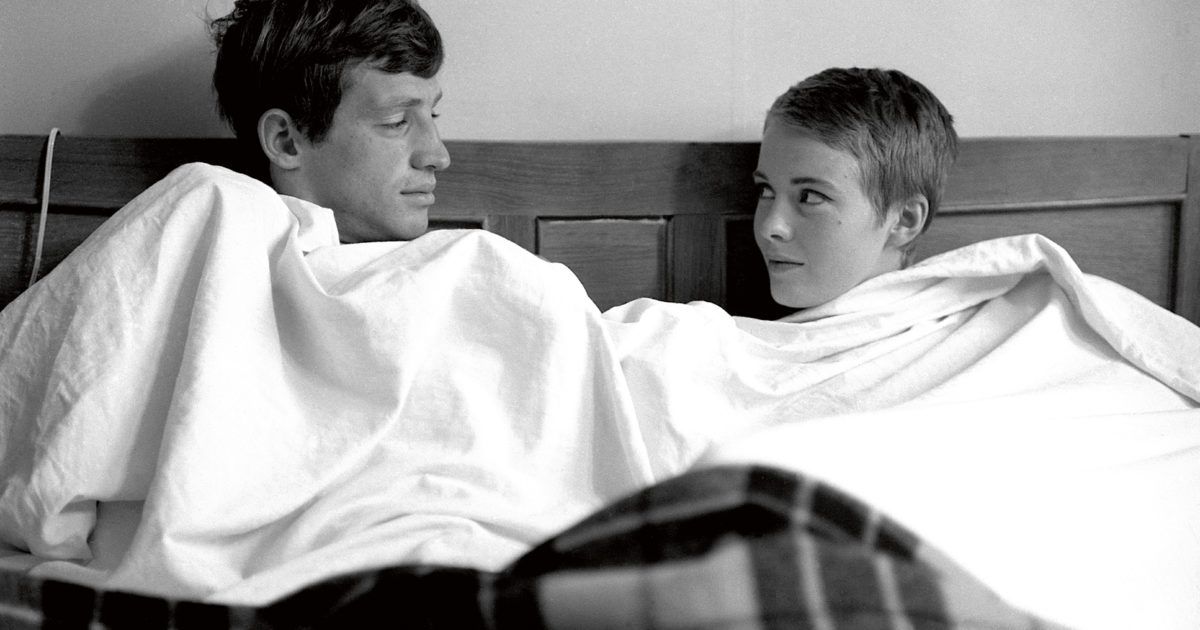Jean-Luc Godard, a pioneer of the 1960s French New Wave film movement, has remained a working filmmaker for almost seven decades. He has directed, written, produced, and edited dozens of films and changed cinema forever. Every film Godard made between his beautiful first full-length feature, Breathless (1960), and his most recent work, the 2018 avant-garde essay The Image Book, is worth seeing.
Godard entered the movie industry as a critic for the influential French film magazine Cahiers du Cinéma in the 1950s, like Francois Truffaut, Claude Chabrol, Eric Rohmer, and Jacques Rivette, who also have become members of the French New Wave movement. Godard and his colleagues have inspired many other filmmakers, including Martin Scorsese, Jim Jarmusch, Bernardo Bertolucci, and Quentin Tarantino, to be playful with the form. Tarantino even named his film company, A Band Apart, based on the French title of Godard's film Band of Outsiders.
Godard’s early films, Breathless, A Woman Is a Woman, My Life to Live, Contempt, Band of Outsiders, Pierrot le Fou, Masculine Feminine, and others, are groundbreaking – but a radical period in Godard’s filmography with political films and the filmmaker’s steps away from conventional narrative cinema later are great too. Let's look at the best movies from Godard, ranked.
8 The Image Book
The great experimental film The Image Book (Le Livre d'image) is Godard’s latest work. At the 2018 Cannes Film Festival, the jury awarded this avant-garde movie with the first-ever Special Palme d'Or. The Image Book is a collage film essay that reflects on the cinema and its inability to recognize the violence of the 20th and 21st centuries, including its failure to account for the Holocaust, Hiroshima, and the Israeli–Palestinian conflict. "It’s the work of a filmmaker who’s looking back at his films and the films of his times — and looking ahead to radical changes to come in the cinema and in the world at large," The New Yorker wrote.
In 2021, 90-year-old Godard said that he is finishing his movie life by doing two last scripts. "Jean-Luc told me he wanted to come back to his origin", frequent Godard collaborator Fabrice Aragno opened up to Variety about Godard’s "final gesture." Hopefully, this means that The Image Book is not the last word from this master.
7 Every Man for Himself
Inspired by the May 68 protest movement in France, in the 1970s Godard made a series of films with strong political messages. After his experimental, quasi-Maoist political films, the filmmaker returned to the classic film circuit in the 1980s and presented what he called his "second first film", Every Man for Himself. The movie focuses on the sexual and professional lives of three characters — a filmmaker named, pointedly, Paul Godard (Jacques Dutronc), his ex-girlfriend Denise (Nathalie Baye), and the prostitute Isabelle (played by Isabelle Huppert). Every Man for Himself proves that Godard's magic of the 1960s didn't die out. It is a stunning film.
6 Alphaville
Uniting a great neo-noir style within a sci-fi dystopia, the 1965 Alphaville is like no other Godard film. It is one of the most unusual science fiction movies, which draws the audience into a world located on a different planet and ruled by a tyrannical supercomputer, created by an evil scientist named Von Braun. Secret agent Lemmy Caution (Eddie Constantine) is sent to Alphaville to destroy the supercomputer; Caution is aided in his mission by Von Braun’s daughter (Anna Karina). Alphaville is a strange but beautiful film about love, language, and genre, and won the Golden Bear award at the 15th Berlin International Film Festival.
5 Contempt
Godard’s only big-budget picture that looks like a Hollywood movie, the 1963 Contempt (Le Mépris) stars Brigitte Bardot as a dissatisfied wife of playwright Paul (Michel Piccoli), who is hired by a corrupt producer (Jack Palance) to rework the script of The Odyssey for director Fritz Lang's (playing himself) film. Godard examines the destruction of Paul and his wife’s marriage and shows the actual process of filmmaking. Contempt is simply one of the most brilliant reflections on the impossibility of love.
4 Pierrot le Fou
The 1965 romantic crime comedy Pierrot le Fou follows unhappily married man Ferdinand (played by Godard's New Wave star Jean-Paul Belmondo), who decides to run away with his ex-lover Marianne (Anna Karina), a girl chased by gangsters. Their crazy journey to nowhere is full of violence and loneliness. In a cameo, American film director Samuel Fuller tells Ferdinand, "Film is like a battleground. Love, hate, action, violence and death, in one word: emotions." It is a perfect definition of Pierrot le Fou, a film with bold visual style and the usual Godard trademarks, such as working without a screenplay and featuring characters who break the fourth wall.
3 Band of Outsiders
Godard’s fresh interpretation of the gangster genre, the 1965 film Band of Outsiders (Bande à part) is a charming and jazzy story about three youngsters who commit a robbery. "It’s as if a French poet took an ordinary banal American crime novel and told it to us in terms of the romance and beauty he read between the lines," The New Republic said of the film. Band of Outsiders became iconic not just in the French film canon, but in the American film canon too: the dance scene in Band of Outsiders influenced a similar scene in Tarantino’s Pulp Fiction, and the film has inspired a whole wive of romanticized crime drama, from Natural Born Killers to True Romance.
2 My Life to Live
From 1961 to 1965, Anna Karina was Godard’s wife, muse, and the leading actress in his most important works. The role in the 1962 drama My Life to Live (Vivre sa vie) is arguably the apotheosis of her career. In this film, Karina is outstanding as Parisian girl Nana who dreams of becoming an actress but fails and ends up as a prostitute. It is a melancholic, honest, and moving movie with the iconic scene, where Nana cries as the real actress cries while watching The Passion of Joan of Arc in the cinema.
1 Breathless
Godard's Breathless (À bout de soufflé) is often cited as one of the best and most important films ever made. In his first full-length feature, the filmmaker mashed up the American crime films and burgeoning French New Wave aesthetic. Starring Jean-Paul Belmondo and Jean Seberg, the 1960 crime drama starts as a gangster film and becomes a romance before ultimately commenting on cinema itself. Godard's beautiful masterpiece rewrote the rules of filmmaking and announced the arrival of a new cinematic language.

